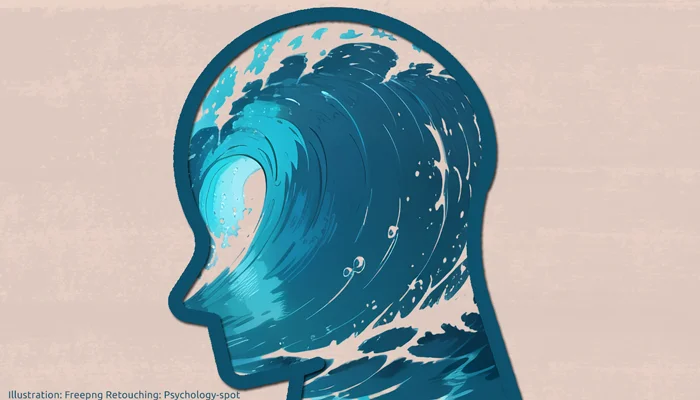
“Small emotions are the great captains of our lives and we obey them without realizing it”, said Van Gogh. On many occasions, feelings and emotions take over and guide our behavior, assume control and lead us to make hasty decisions that we later regret or join us in a state of frustration and hopelessness that prevents us from thinking clearly.
In those cases, emotions become our enemies because they take away our inner peace. The more we strive to control them, the more they control us, falling into a vicious circle. The solution, to recover the emotional balance and shield it against adversity, consists in changing perspective.
The Acceptance and Commitment Therapy, which is based on the idea that thoughts have a great power over what we feel and we do not need to strive to change them but only accept them to limit the suffering they cause, proposes to reflect on the wave’s metaphor.
The wave’s metaphor
Imagine a white sand beach washed by waves. There will be small waves that encourage bath and with their constant pounding generate a pleasant sensation of peace and tranquility, but sometime will also arrive big waves with a threatening look.
If you are in the water and notice one of those huge waves, you will be scared and want to escape. At that point you have two options, try to reach the shore or dive and let the wave pass over you. If you are really afraid, you will most likely try to reach the shore and the wave will hit you when it breaks on the sand.
However, the worst is that then another threatening wave will come closer. Then you escape again. Each time a new wave arrives, it seems more threatening than the previous one and, as a result of your effort to escape them, you feel increasingly tired.
If you simply dive into the water, you will hardly notice the force of the wave. Finally, both the barely perceptible waves and the huge ones end up disappearing on the shore. The difference lies in the way you deal with them. We must remember that we do not drown by falling into the water, but by the time we remain submerged.
That beach with its waves is a representation of what happens inside you, waves are emotions or thoughts, which can not hurt you, unless you try to fight against them. There is no doubt that seeing an immense wave approaching can be scary, they can make us feel bad momentarily and it may even seem that it is the end of the world, but finally they will end up dissolving in the sand.
When in life we go through situations that resemble those giant waves, it is understandable that we feel frightened, sad or anxious; but feeding negative thoughts will only generate more fear, frustration and mental breakdown. Instead of resisting these situations, trying to flee or denying them, we must simply accept them and try to alleviate the blow in the best possible way. That is not resignation, it is intelligence.
How to control negative emotions with the wave’s metaphor?
The metaphor of the waves on the beach will help you distance yourself from those irrational thoughts that feed negative emotions. It helps us understand that on many occasions our suffering does not come from what happens to us but from what we say to ourselves, from the inner dialogue that we set in motion. When we give too much importance to our stories and concerns, we tend to increase suffering.
Thoughts and emotions have no more power than what you give them. Finally, the waves will end up disappearing and the sea will be calm again. This visualization exercise is very effective for dealing with complicated situations when negative thoughts and emotions want to take control.
- Observe your emotions
Note your emotions and feelings
Take a step back, metaphorically, so that you can become a spectator of your “inner waves”
- Experience your feelings
Focus on your “inner waves”, perceive how emotions come and go
Stop the impulse to block those sensations
Do not try to get rid of them
Do not move them away, but do not cling to them either
- Assume that you are not those feelings
Stop the impulse to act, understand that you do not need to act accordingly
Remember the moments in which you have felt similarly in the past, remember that in the end, those emotions have disappeared
Let go the concerns associated with those emotions and sensations
- Feel comfortable with your emotions and feelings
Do not judge what you feel
Accept fully those emotions, give them a name
Finally, assume that they are like the waves of the sea and learn to flow with them, without that they hurt you.



